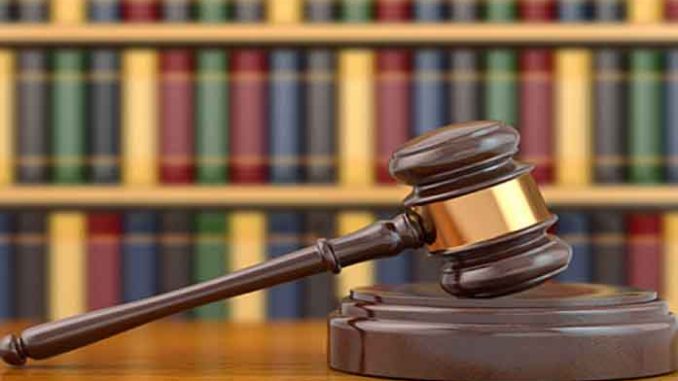By Terri Jo Neff |
A judge will decide next week whether Arizona voters will see an initiative on the Nov. 8 General Election ballot to approve what the Arizona Free Enterprise Club calls “radical” election procedure changes.
Judge Joseph Mikitish of the Maricopa County Superior Court has set Aug. 5 for a hearing on an Order to Show Cause as to why he should not grant a request by the Arizona Free Enterprise Club (AFEC) to invalidate more than half the signatures submitted earlier this month on initiative petitions for the proposed Arizonans for Free and Fair Elections Act (AFFE Act).
Mikitsh’s hearing stems from a lawsuit filed July 22 by AFEC, which argues the AFFE Act would upend Arizona’s election administration and voter registration laws, curtail current safeguards with the initiative and referendum process, and reduce candidate contribution limits while promoting more taxpayer subsidies to certain ‘Clean Elections’ candidates.
According to AFEC’s lawsuit, the political committee Arizonans for Free and Fair Elections (ADRC Action) filed an application in February with Arizona Secretary of State Katie Hobbs for a serial number necessary to commence a petition drive in hopes of getting the Arizonans for Free and Fair Elections Act on the statewide ballot for the 2022 General Election.
Then on July 7, Hobbs was presented with nearly 52,000 petitions sheets containing a purported 475,290 signatures of qualified electors, of which at least 237,645 must be deemed valid to get the AFFE Act on the general election ballot.
But state law requires that all circulators who are not Arizona residents along with all paid circulators regardless of residency must register as circulators before they may begin collecting petition signatures. The circulators must also affix their unique circulator registration ID number to each petition they circulate.
AFEC contends, however, that more than 1,000 of the circulators who collected signatures for the AFFE Act initiative were non-compliant with at least one state election law. Some of the compliance issues involved incomplete registration forms while other circulators allegedly did not write their “full and correct registration number on both sides of the sheet,” as required by law.
The lawsuit seeks a court order requiring Hobbs to disqualify all petition signatures obtained by circulators who were not registered in compliance with state law. It also asks Mikitish to bar the state’s 15 county recorders from verifying any signatures on petitions in which the circulator’s registration number was not properly affixed.
“Petition signatures obtained by individuals who failed to strictly comply with
one or more provisions of applicable law are legally insufficient,” the lawsuit states. “Injunctive remedies are necessary to prevent irreparable injury to the
Plaintiffs and to ensure that the Defendant fully and effectively discharges the duties imposed upon her by state law.”
The lawsuit does not supply a tally of the disputed signatures, but AFEC’s Executive Director Scot Mussi said Monday that well over half of the signatures submitted by ADRC Action were collected in violation of Arizona law.
“That should be more than enough to invalidate this initiative,” Mussi said.
Among the provisions of the Arizonans for Free and Fair Elections Act is one which would restrict legislative election audits such as the one Senate President Karen Fann approved last year. It would also allow same-day voter registration
In addition, it would prohibit any law being enacted calling for voters to show identification when dropping off a mail-in ballot at a polling station or election center.
Another provision of the Act is a requirement that elections officials accept tribal IDs when registering voters and confirming their voting eligibility, even though county recorders do not have access to tribal membership databases.
Election-related legal challenges are heard by the courts on an expedited basis. Mikitish’s show cause hearing comes more than three months before the Nov. 8 election, but the case must be resolved by the end of August to ensure the counties have sufficient time for printing and delivery of early ballots and ballots which are sent to voters under the Uniformed and OverseasCitizens Absentee Voting Act.
Even if the AFEC legal challenge fails, many elections observers doubt that voters will approve the initiative. The problem, they note, is that the Act includes so many different provisions that voters will find enough objectionable that they will reject the whole initiative.
Co-plaintiffs in the case are AFEC’s Mussi and Aimee Yentes, both of whom are registered voters in Arizona. Meanwhile, Arizonans for Free and Fair Elections (ADRC Action) has been named as a Real Party in Interest in the lawsuit.
AFEC is an Arizona nonprofit corporation organized and operated for the promotion of social welfare, within the meaning of IRS Code of 1986, section 501(c)(4). The organization engages in public education and advocacy in support of free markets and economic growth in the State of Arizona.








